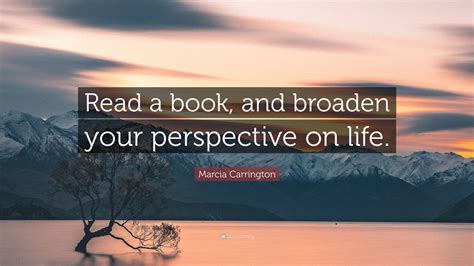Expanding your perspective is essential for personal growth, innovation, and understanding the world around us. By embracing diverse viewpoints, we can challenge assumptions, cultivate empathy, and make more informed decisions. To embark on this transformative journey, dive into these insightful books on perspective:

1. “The Power of Perspective” by Katherine Schwarzenegger Pratt
This empowering guide explores the transformative power of perspective. Pratt argues that by shifting our focus from negative thoughts to gratitude, kindness, and service, we can unlock greater happiness and fulfillment.
Keywords: Perspective, Gratitude, Positive Thinking
2. “The Happiness Project: Or, Why I Spent a Year Trying to Sing in the Morning, Clean My Closets, Fight Right, Read Aristotle, and Generally Have More Fun” by Gretchen Rubin
Rubin embarks on a year-long experiment in happiness, trying out different strategies from philosophy, self-help, and religion. Her insightful observations and practical tips offer valuable lessons on finding joy and contentment.
Keywords: Happiness, Perspective, Self-Improvement
3. “The Art of Thinking Clearly” by Rolf Dobelli
Drawing from psychology, science, and philosophy, Dobelli exposes cognitive biases and mental traps that can cloud our judgment. By understanding these obstacles, we can improve our decision-making and avoid common pitfalls.
Keywords: Cognitive Biases, Critical Thinking, Rationality
4. “The 7 Habits of Highly Effective People” by Stephen R. Covey
This classic bestseller presents seven principles for personal and professional effectiveness. Covey emphasizes the importance of integrity, proactive behavior, and seeking win-win solutions to foster harmonious relationships and achieve success.
Keywords: Effectiveness, Habits, Leadership
5. “Mindset: The New Psychology of Success” by Carol S. Dweck
Dweck’s groundbreaking work explores the power of beliefs. She argues that people with a fixed mindset believe their intelligence is fixed, while those with a growth mindset believe it can be developed. By embracing a growth mindset, we can overcome challenges, learn from mistakes, and achieve our full potential.
Keywords: Mindset, Performance, Motivation
6. “The Innovator’s Dilemma: When New Technologies Cause Great Firms to Fail” by Clayton M. Christensen
This seminal work warns of the pitfalls of incumbency. Christensen shows how successful companies can be blindsided by disruptive innovations, which often start as small and insignificant threats. By understanding the dynamics of innovation, we can avoid complacency and embrace new opportunities.
Keywords: Innovation, Disruption, Technology
7. “The End of Average: How We Succeed in a World That Values Sameness” by Todd Rose
In a world where conformity is often rewarded, Rose challenges the notion of “average” and advocates for embracing individuality. He argues that by harnessing our unique talents and perspectives, we can thrive in an increasingly diverse and competitive environment.
Keywords: Individuality, Diversity, Creativity
Transformative Benefits of Expanding Perspective
Expanding our perspective offers numerous benefits, including:
- Enhanced understanding of different cultures and worldviews
- Increased empathy and compassion towards others
- Reduced biases and prejudices
- Improved problem-solving and decision-making
- Greater creativity and innovation
- Increased resilience and adaptability
- Cultivated sense of purpose and meaning
4 Strategies for Broadening Perspective
To broaden your perspective, consider these strategies:
- Seek out new experiences and travel to different places
- Engage with diverse people and conversations
- Read widely on various topics and perspectives
- Actively challenge assumptions and biases
- Practice empathy and understanding towards others
4 Useful Tables
- Table 1: Books on Perspective and Their Key Focuses
| Book Title | Key Focus |
|---|---|
| The Power of Perspective | Gratitude, Positive Thinking |
| The Happiness Project | Happiness Strategies, Self-Improvement |
| The Art of Thinking Clearly | Cognitive Biases, Critical Thinking |
| The 7 Habits of Highly Effective People | Personal and Professional Effectiveness |
- Table 2: Benefits of Expanding Perspective
| Benefit | Impact |
|---|---|
| Enhanced Understanding | Improved communication, cultural sensitivity |
| Increased Empathy | Reduced prejudice, fostered relationships |
| Improved Decision-Making | Reduced biases, better outcomes |
| Greater Creativity | New ideas, innovative solutions |
| Cultivated Purpose | Meaningful life, personal fulfillment |
- Table 3: Strategies for Broadening Perspective
| Strategy | Impact |
|---|---|
| New Experiences | Exposure to diverse cultures, perspectives |
| Diverse Conversations | Expanded horizons, challenged assumptions |
| Reading Widely | Literary exposure, intellectual growth |
| Challenge Assumptions | Cognitive flexibility, reduced biases |
| Practice Empathy | Compassion, understanding |
- Table 4: Perspectives in Various Fields
| Field | Perspectives |
|---|---|
| Psychology | Cognitive, behavioral, humanistic |
| Sociology | Cultural, structural, symbolic interactionist |
| Economics | Neoclassical, Keynesian, Behavioral |
| Philosophy | Existentialism, Phenomenology, Pragmatism |
| Education | Constructivism, Critical Pedagogy, Experiential Learning |
FAQs on Perspective
-
What is the importance of perspective in life?
Perspective shapes our understanding of the world, influences our decisions, and determines our overall well-being. -
How can I change my perspective?
Challenge assumptions, embrace new experiences, and actively seek out diverse perspectives. -
Why is perspective important in business?
A broader perspective fosters innovation, enhances decision-making, and promotes a more inclusive and effective workplace. -
How can I overcome narrow-mindedness?
Practice empathy, actively listen to others, and engage in critical thinking. -
What are the effects of a closed mindset?
A closed mindset limits personal growth, hinders creativity, and perpetuates biases. -
How can I develop a growth mindset?
Embrace challenges, learn from mistakes, and seek out feedback to develop a growth-oriented perspective.
Conclusion
Expanding our perspective is a lifelong journey that enriches our lives, fosters empathy, and opens up new possibilities. By embracing these enlightening books on perspective, engaging in transformative strategies, and challenging our assumptions, we can cultivate a more nuanced understanding of the world and create a more inclusive and harmonious society.
